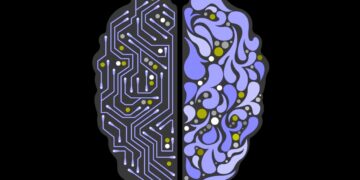As the world pushes boundaries in scientific innovation, quantum computing has emerged as a game-changing force poised to revolutionize technology, science, and industries at large. Far beyond the capabilities of classical computers, quantum computing leverages the strange yet powerful principles of quantum mechanics to solve problems once considered unsolvable.
This shift represents more than just faster computers — it’s a transformation that challenges the very foundation of digital information processing. By exploiting quantum phenomena such as superposition, entanglement, and quantum tunneling, quantum computers have the potential to outperform the world’s most advanced supercomputers in select, high-impact problem domains.
In this article, we’ll explore how quantum computing is redefining performance boundaries, the principles behind its operation, its real-world applications, and the challenges that lie ahead.
What Is Quantum Computing?
To understand quantum computing, it’s crucial to first grasp how it differs from traditional, classical computing.
Classical vs. Quantum Computing
Classical computers operate using bits, which represent either a 0 or a 1. All computations are made using these binary states.
In contrast, quantum computers use qubits (quantum bits). Unlike classical bits, qubits can represent both 0 and 1 at the same time thanks to the property known as superposition. This allows quantum systems to perform many calculations simultaneously.
Another key quantum property is entanglement, where qubits become interconnected. Changing the state of one qubit instantly affects the other, no matter the distance between them. This behavior, which Einstein famously called “spooky action at a distance,” provides quantum computers with unprecedented coordination and speed in solving complex problems.
Core Principles of Quantum Computing
Quantum computing stands on three foundational concepts:
A. Superposition
A qubit can exist in multiple states at once. This allows a quantum computer to process a massive number of possibilities simultaneously.
B. Entanglement
Entangled qubits are connected in such a way that the state of one affects the other. This leads to coordinated operations and faster computation speeds.
C. Quantum Interference
This mechanism allows quantum computers to amplify the correct solutions to a problem while canceling out the incorrect ones.
D. Quantum Tunneling
This refers to the ability of particles to pass through energy barriers. In quantum computing, this helps with optimization problems where traditional computers might get stuck.
Why Quantum Computing Is a Technological Breakthrough
Quantum computing is not just a faster version of what we already have. It’s a paradigm shift that opens doors to computational tasks that would otherwise take centuries or longer to solve with classical machines.
Benefits of Quantum Computing:
A. Unmatched Processing Power
Quantum systems can solve problems involving massive data sets and variables, offering exponential speed improvements over traditional computers in certain scenarios.
B. Advanced Problem Solving
Fields such as cryptography, molecular biology, logistics, and artificial intelligence benefit from quantum computing’s ability to evaluate billions of combinations in seconds.
C. Energy Efficiency
In theory, quantum computers could drastically reduce energy consumption for large-scale computations, making them a more sustainable alternative in the long term.
D. Revolutionizing AI and Machine Learning
Quantum algorithms can accelerate training times, increase model accuracy, and solve challenges that current machine learning systems struggle with.
Real-World Applications of Quantum Computing

Quantum computing is already being explored for a wide range of practical applications. While we’re still in the early stages, research and development efforts across academia, governments, and tech companies are accelerating.
Industry-Specific Uses
A. Pharmaceuticals and Healthcare
Quantum computers can simulate molecular structures and chemical reactions with high precision, making drug discovery faster and more cost-effective.
B. Finance
Quantum algorithms help optimize trading strategies, manage risk, and detect fraud more efficiently.
C. Cybersecurity
Quantum cryptography and post-quantum encryption methods are being developed to secure communications in a future where traditional encryption may be obsolete.
D. Logistics and Supply Chain Management
Quantum optimization can drastically improve routing and supply chain processes, especially for global logistics companies.
E. Climate Modeling
Quantum systems could enhance climate simulations, helping scientists predict weather patterns and understand climate change on a much deeper level.
F. Artificial Intelligence
Quantum AI can handle massive datasets, reduce training time, and improve neural network optimization for smarter, more capable systems.
Quantum Supremacy: Breaking Classical Barriers
Quantum supremacy refers to the point at which a quantum computer performs a task no classical computer can complete in a reasonable time frame.
In 2019, Google claimed to have achieved quantum supremacy with their 53-qubit processor Sycamore, solving a complex problem in 200 seconds — a task they estimated would take the fastest supercomputer over 10,000 years.
While this milestone was symbolic and the practical application of that task was limited, it marked a pivotal moment. It proved that quantum computers can outperform classical machines for specific, complex problems.
Key Players in Quantum Computing
Numerous organizations are heavily invested in the quantum race, including:
A. IBM
With its IBM Quantum initiative and Qiskit open-source platform, IBM offers cloud access to quantum processors and leads many research collaborations.
B. Google
Google’s quantum computing division, part of Google AI, is focused on achieving practical quantum advantage and exploring scientific frontiers.
C. Microsoft
Microsoft’s Quantum Development Kit and Azure Quantum provide tools for building quantum applications using a hybrid approach.
D. Intel
Intel is investing in scalable quantum processors and developing control systems to improve quantum hardware.
E. D-Wave
A pioneer in quantum annealing, D-Wave offers commercial quantum systems used for optimization and machine learning tasks.
F. Amazon
Through Amazon Braket, AWS gives users access to quantum computing platforms from multiple providers, accelerating experimentation and adoption.
Challenges to Overcome
Despite its promise, quantum computing faces significant hurdles that must be addressed before large-scale adoption becomes a reality.
Major Challenges:
A. Decoherence and Noise
Qubits are extremely sensitive to their environment. Even minor interference can lead to computational errors. Maintaining quantum states long enough to perform calculations is a major engineering challenge.
B. Error Correction
Because of decoherence, quantum computers require sophisticated error correction techniques, which often require more qubits than are available.
C. Hardware Scalability
Creating stable, scalable quantum hardware is extremely complex. Current systems operate with limited qubit counts and require cryogenic environments to function.
D. Software Development
Quantum programming languages are still evolving. Writing algorithms that can exploit quantum speedups requires a deep understanding of quantum physics and computer science.
E. Workforce Shortage
There is a global shortage of professionals trained in quantum computing, creating bottlenecks in research and development.
The Future Outlook: Quantum as a Cloud Service
To make quantum computing more accessible, several companies now offer Quantum Computing as a Service (QCaaS). This model allows developers, researchers, and enterprises to experiment with quantum algorithms using cloud platforms, without the need to own quantum hardware.
Popular quantum cloud services include:
A. IBM Quantum Experience
Offers access to real quantum systems, educational tools, and development resources.
B. Amazon Braket
Provides a unified interface to several quantum devices, including D-Wave, Rigetti, and IonQ.
C. Microsoft Azure Quantum
Integrates classical and quantum computing to create hybrid applications with the Q# language.
How to Prepare for the Quantum Future
Whether you’re a student, developer, or business leader, preparing for a quantum future is increasingly essential. Here’s how you can start:
A. Learn the Fundamentals
Understand quantum mechanics basics, linear algebra, and quantum logic gates.
B. Experiment with Quantum SDKs
Platforms like Qiskit, Cirq, and Q# allow you to build quantum circuits and run simulations on real devices.
C. Engage with the Community
Join forums, attend quantum computing conferences, and participate in research projects to stay updated.
D. Identify Use Cases for Your Industry
Explore how quantum computing could impact your specific sector and brainstorm how to prepare strategically.
E. Partner with Quantum Providers
Many companies now offer consultation and support to help businesses integrate quantum technology into their long-term plans.
Conclusion: A New Frontier in Computing
Quantum computing is no longer just theoretical. It is a developing reality that is already disrupting traditional notions of computation. Although there are significant hurdles to overcome, the potential applications — from revolutionizing drug development to redefining cybersecurity — are too vast to ignore.
As breakthroughs continue to unfold, one thing is clear: quantum computing is set to be a cornerstone of the next technological revolution. For businesses, developers, and researchers alike, now is the time to prepare for a future where quantum capabilities define innovation.








